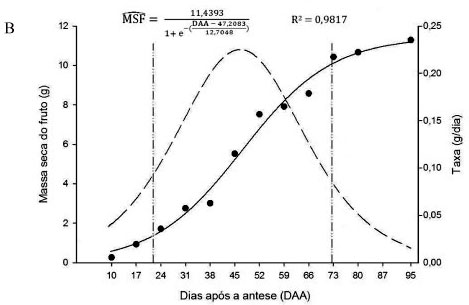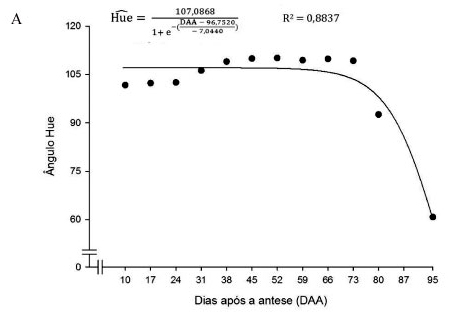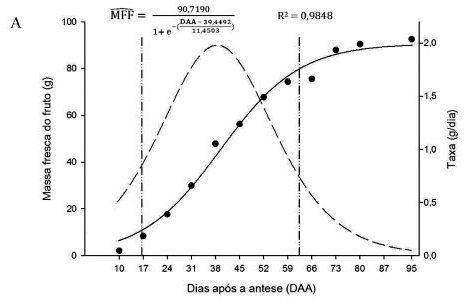The lulo is a tropical and exotic fruit, originating in the Andes is orange when ripe, and is a globose berry, resembling a tomato, the epicarp is thick and leathery, its pulp is light green, sticky, sour and juicy, containing many seeds. The objective of this study was to monitor the physical, chemical and physiological characteristic changes occurring during lulo fruit development, from anthesis to the full plant maturation. The fruits were harvested in the orchard of the Federal University of Viçosa and the analysis performed in the Laboratory of Fruits Analysis, from the Plant Science Department. The reproductive cycle of lulo lasted 95 days. Fruits development was divided into three phases. The first phase was up to 7.39 days after anthesis (DAA), being characterized by high respiratory rates, probably due to the intense cell multiplication and the pericarp showed light green color. The second phase occurred from 7.39 DAA to 57,63 DAA, being characterized by maximum rates of increase in dimensions of the fresh and dry fruit, the pericarp developed an intense green color and respiratory rates increased until 45 DAA and remained stable until 52 DAA. The third and final development phase occurred from 57.63 DAA to 95.00 DAA, the last day of evaluations. This phase was characterized by dimensions stabilization and accumulation of fresh mass. In this period, the climacteric rise (from 52 to 59 DAA) occurred. The respiratory climacteric occurred at 66 DAA, with peak production of CO2 of 110,99 mg CO2 kg-1 h-1. The post-climacteric was between 73 and 95 DAA, when soluble solids increased and acidity and vitamin C from the pulp decreased. At this stage, the pericarp of the fruits showed orange coloration.
growth analysis; point of harvest; exotic fruit















